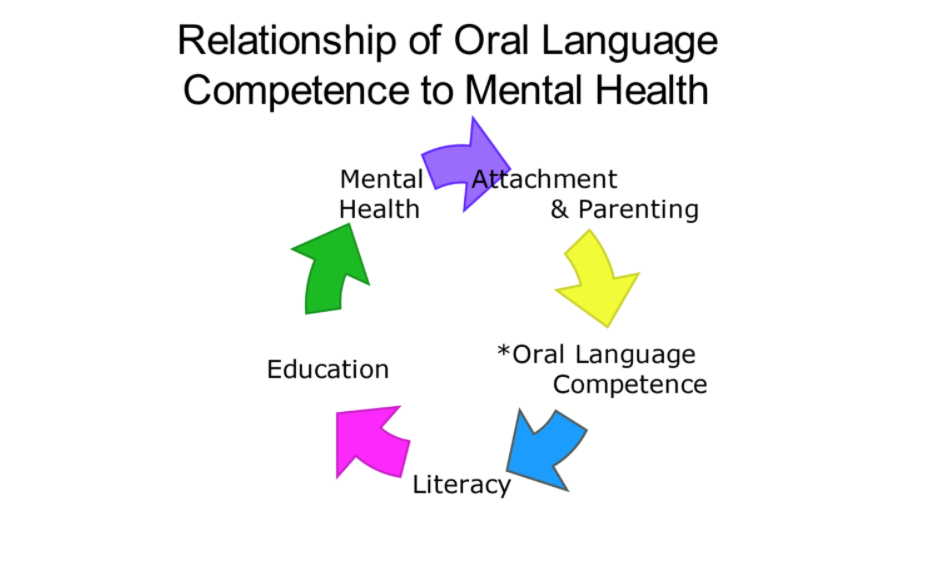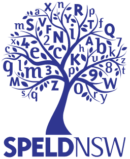SPELD NSW Professional Member and Speech and Language Pathologist, Wendy Coggins*, has worked with students, teachers and schools for over 35 years. She is a firm advocate for speech pathologists working collaboratively with teachers in schools to improve student outcomes.
However, over her career, she has often seen a disconnect between external speech pathology service delivery and schools. In NSW, speech pathology is traditionally seen as a ‘health service’ separate from education, despite shared students, and both stakeholders having the same goals for students to successfully engage and learn from the curriculum.
More recently, just as the demand for school speech pathologists has increased, the increased uptake for speech pathology services for the NDIS (National Disability Insurance Scheme) has led to a distinct shortage of speech pathologists.
Nonetheless, Wendy has a cheerful optimism about the future with so many positive changes taking place within education in New South Wales.
Speech pathologists working with schools can make a real impact to support teachers and assist students with speech, language and communication needs. Here, Wendy shares her experiences and the benefits of school collaboration.
Tell us about some of your experiences with schools?
“I worked between my clinics and schools for many years. Most schools have been local in north- west Sydney. However, two key associations have been most fulfilling:
From 2011-2013, I worked in a ‘therapy schools’ project under the Catholic Diocese of Sydney, and through the Australian Government’s More Support for Students with Disability (MSSD) funding. As part of a team of Speech Pathologists and Occupational Therapists, I was paired with schools for two terms at a time, to collaborate with teachers around their students’ needs and model strategies at a whole class level across grades. In all, I worked across 9 schools during this highly successful project for whole class outcomes.
Since 2008, I have worked at an independent school which also welcomed a whole class approach. For the last 7 years I have taught explicit phonics for spelling in Kindergarten, Year 1 and Year 2. This has led to a strong cohort of spellers and readers ready to focus more easily on the vocabulary and language demands of upper primary, as well as the lower primary staff undertaking ‘Sounds-Write’ training. The same school has utilised speech and language screening in Kindergarten years, leading to small group and whole class interventions to support a diversity of language learners.
As you can see, I am a strong believer of speech pathologists working collaboratively in schools. The benefits exponentially increase if the Speech Pathologist can establish strong and long lasting relationships with staff. Although this can be challenging, persistence is the key.”
What are the benefits of speech pathologists working closely with schools?
“For students with a communication disorder and specific learning difficulties, in my experience, some benefits are:
- In individual therapy, students are not as tired as they would be attending after a day at school.
- They are learning skills they can immediately apply in their most important environment.
- The session content for can be tailored around classroom work which has been ascertained beforehand by the therapist and incorporated into the therapy plan.
- Students can be observed in their natural learning and social environments with therapy goals finetuned accordingly.
For teachers, in my experience, some benefits include:
- Teachers and support staff have access to SLP’s unique skill set to better understand and help students with communication disorder and specific learning difficulties.
- Evidence based strategies can be seen first- hand and a collaborative plan developed for targeted assistance, implementation and review assessment in the classroom
- Upskilled teachers can ‘coach’ others and start a dialogue which may lead to a whole school approach for particular strategies or scaffolds across grades
For the Speech Pathologist, in my experience, some benefits are:
- Increased work satisfaction because students’ intervention is focused AND functional in context. Results are seen.
- Work diversity, with the opportunity to work at individual, small group and whole class levels (Tiers 3, 2 and 1 using the Response to Intervention Model)
- Satisfaction from being able to contribute to a school’s overall learning culture.”
What are your tips for new Speech and Language Pathologists entering the profession?
“In Paediatric Speech Pathology, the following ideas have proved useful for me:
- Listen well to clients, parents and teachers – take time to process their concerns and avoid being reactionary. In my opinion a good clinician takes time to think before acting.
- Be prepared to adapt! Keep learning and applying new evidence.
- Model the art of perseverance through small steps. Many of our clients will take years to reach their goals; work with parents to be their best advocates.
- Value your unique skill set and share it.
- Be client centred first and foremost. This is the basis of collaboration – that you and other stakeholders want the same outcome for the client.
- Be holistic – remember the big picture for society (see diagram below ‘Relationship of Oral Language Competence to Mental Health’ from a presentation by Dr Pamela Snow)
- Utilise the comprehensive set of resources now available from Speech Pathology Australia
- To be in the job for the long haul, create and adhere to boundaries so you can have time to rest and reflect. If you develop respect in client relationships, your needs will also be respected.”
*Wendy is a member of Speech Pathology Australia. Her views do not necessarily represent Speech Pathology Australia.

More information
SPELD NSW is pleased to have a number of speech and language pathologists on our SPELD NSW Referral Database. It is really important to identify difficulties with literacy and numeracy early because the earlier intervention can be provided the better. Speech Pathologists can be a great place for parents to begin intervention and seek support.
Speech pathologists and teachers are using programs such as Sounds-Write with their students – for the latest Sounds-Write Courses visit our Professional Learning Calendar.
*Wendy is a member of Speech Pathology Australia, her views do not necessarily represent those of Speech Pathology Australia.
Speech Pathology Australia has developed resources to assist Speech Pathologists working with schools. This resource promotes a whole school approach to support engagement and participation of students with speech, language and communication needs in schools. Speech Pathology Austalia notes the collaboration with the NSW Department of Education and its stakeholders to produce the components for principals, teachers and families.




